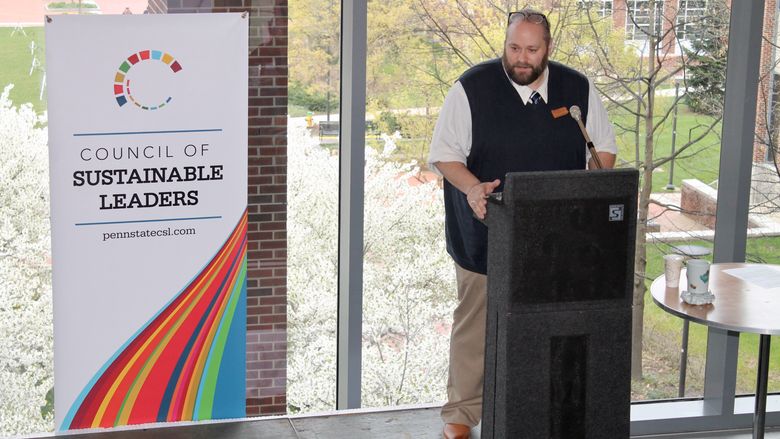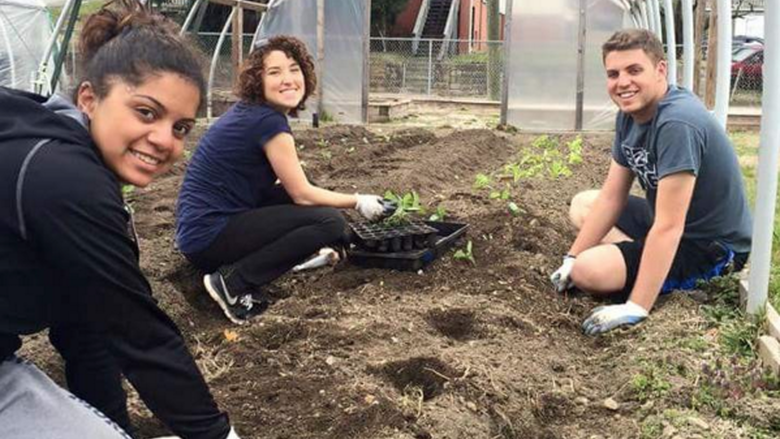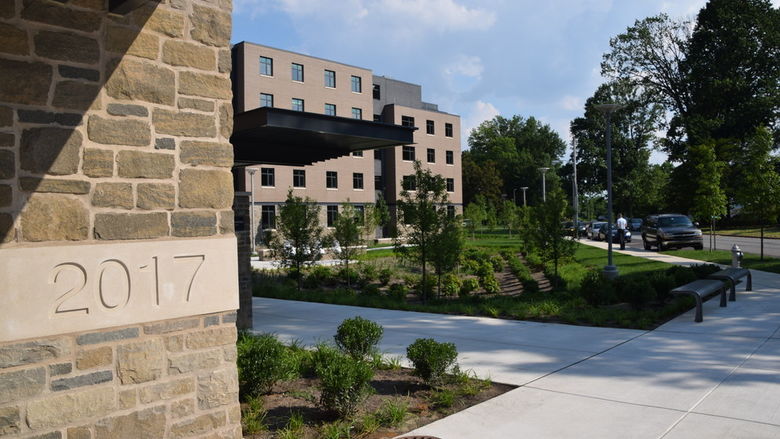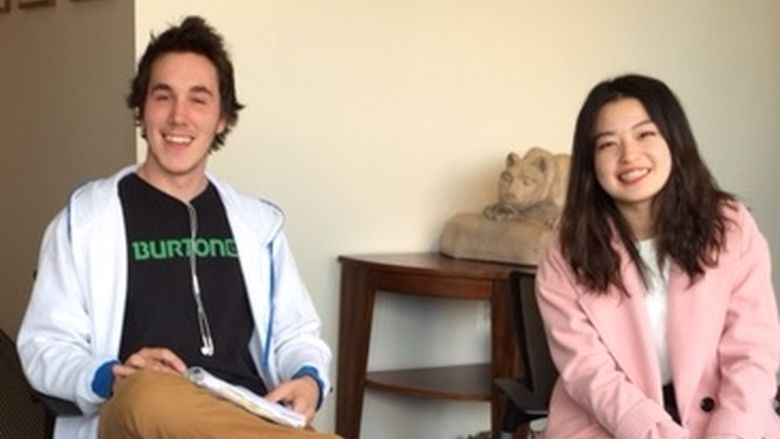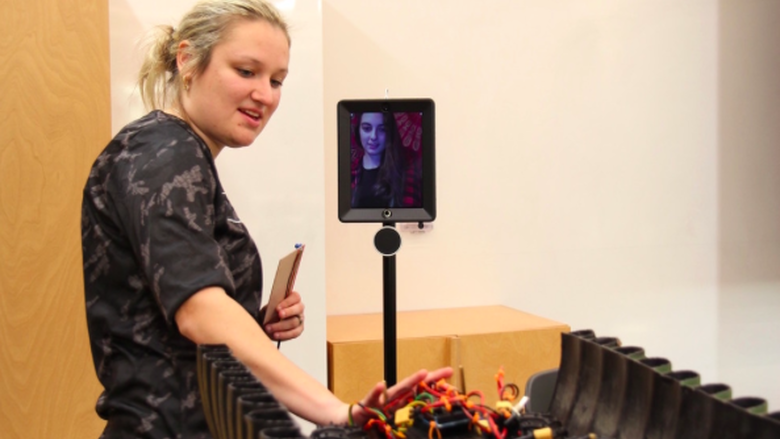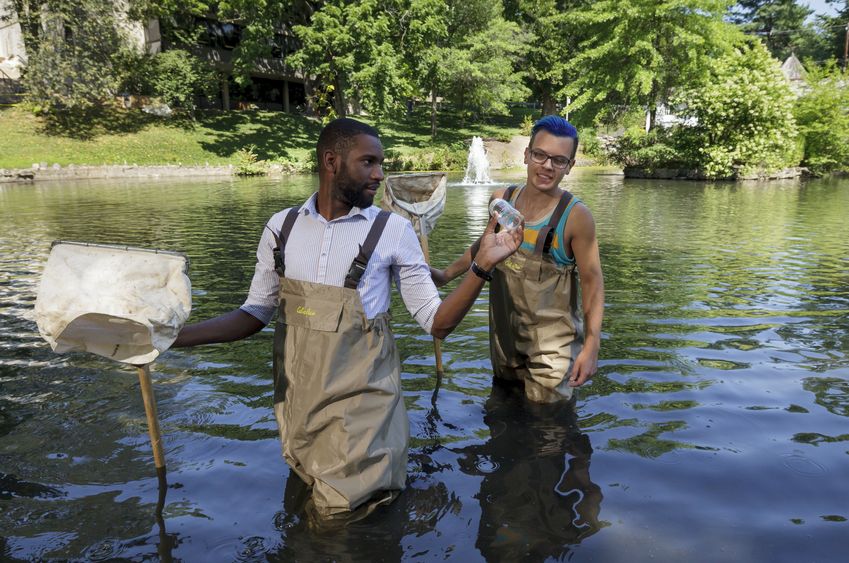
Penn State Abington students use the pond and other resources on campus for coursework and projects related to sustainability.
ABINGTON, Pa. — A recent conference at the Penn State Center in Philadelphia demonstrated the transformative resources the University and its collaborators offer in southeastern Pennsylvania. Researchers, community members and students shared experiences and best practices at the Public Scholarship, Community Engagement Practice, and Sustainability Colloquium.
Presenters tackled broad issues including civic participation versus nonparticipation; social, environmental and economic sustainability and justice; storytelling and therapy; and dialogue and power.
“We have to interrupt us-versus-them concepts and have hard conversations. Sustainability has a different meaning depending on where you grew up.”
-- Conference presenter
Norah Shultz, senior associate dean for Academic Affairs at Penn State Abington, brought a sociological perspective to the discussion.
“We must consider how backgrounds, families and neighborhoods influence our participation and attitude toward sustainability,” she said. “And we must include all sectors, public and private, as well as public health and social cohesion, in our actions.”
On a practical level, speakers stressed that all stakeholders must become active participants in decisions impacting their communities.
“We have to interrupt us-versus-them concepts and have hard conversations,” one presenter said. “Sustainability has a different meaning depending on where you grew up.”
They shared stories from the field, highlighting democratic projects including those encompassing the most basic needs: health, nutrition, urban agriculture, food justice and security.
These presentations tied directly into the mission of the University’s Outreach, Extension and Engaging Philadelphia efforts, which connect Penn State’s programs, research and service to the community.
The Penn State Center Engaging Philadelphia, under the leadership of John Byrnes, focuses on specific areas: horticulture, nutrition education, urban agricultural entrepreneurship, youth development and landscape architecture.
“We must consider how backgrounds, families, and neighborhoods influence our participation and attitude toward sustainability.”
-- Norah Shultz, senior associate dean, Penn State Abington
The second day of the conference included a tour of the GridStar interactive smart home at the Philadelphia Navy Yard. The federal Department of Energy GridStar center is part of the architectural engineering program at Penn State.
The Penn State Sustainability Institute's strategic plan provided the guiding principle of the conference: Sustainability is the simultaneous pursuit of human health and happiness, environmental quality, and economic well being for current and future generations.
The colloquium was jointly sponsored by Penn State and the Pennsylvania Campus Compact (PACC). Collaborators within the University included: Penn State Abington, The Penn State Center: Engaging Philadelphia, the Sustainability Institute, the Intercollege Minor in Civic and Community Engagement through the Office of Undergraduate Education, and the Center for Community and Economic Development.
